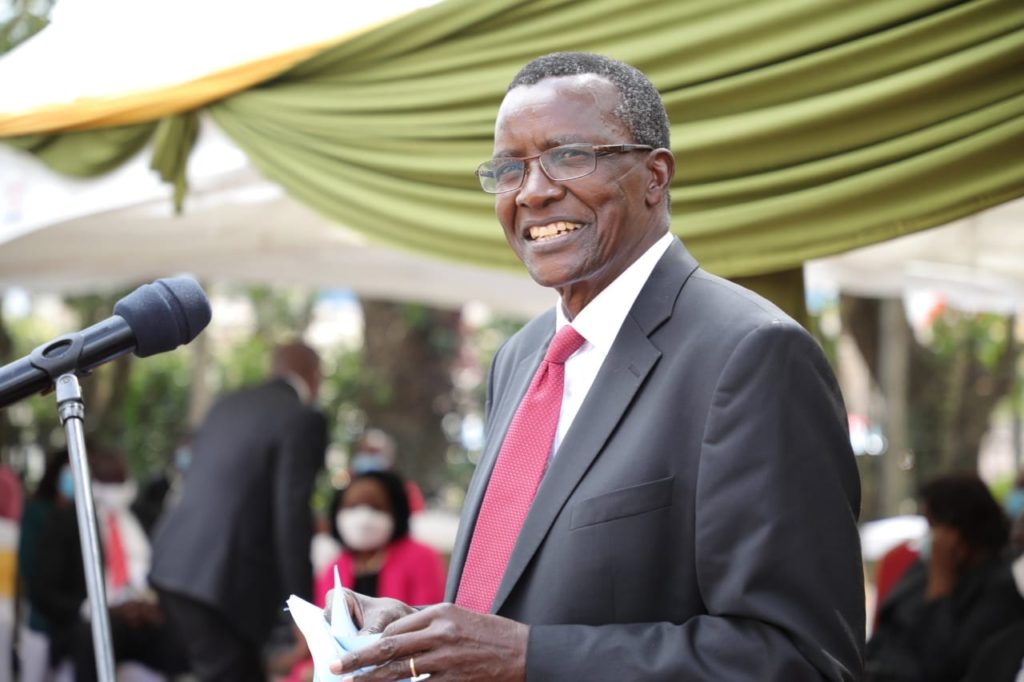NAIROBI, Kenya, Dec, 11 – Chief Justice David Maraga has warned of the increasing interference of the executive on the Judiciary further warning that the Building Bridges Initiative (BBI) steering committee’s final report on judiciary reforms will compromise its independence and destroy public confidence in the third arm of government.
Maraga who spoke on behalf of the Judicial Service Commission Friday, said the BBI steering committee has made far reaching recommendations including the creation of the Judicially ombudsman who shall be appointed by the President and approved by the senate.
The Judicial Service commission is now recommending that the structure and functions of the ombudsman as proposed by the BBI report under the Constitution of Kenya Amendment Bill 2020 be abandoned and instead the Judiciary Ombudsman be appointed by the JSC with a mandate to conduct investigations and report to the commission which will take appropriate actions as authorised by the constitution.
“Several concerns arise from this proposal, the constitution vests in the JSC, an independent commission, the responsibility of ensuring the independence and accountability of the judiciary. The result of the BBI proposal is a direct conflict and duplication of roles between the Ombudsman and Judicial Service commission,” said the Chief Justice.
Maraga said that the proposal risks there being parallel complaints being instituted by the JSC and the Ombudsman and as a result there is a possibility of different decisions being arrived at “resulting into a constitutional quagmire.”
“Of greater concern is the fact that there already exists alternative channels, such as the office of the judiciary ombudsman and the commission on the administration of justice through which the public can voice meaningful complaints,” he said.
The first BBI taskforce report published in 2019 offered a broad recommendation that strongly formed needs to be taken to increase public confidence in the judiciary.
It further acknowledged the need to guard the independence of the Judiciary while also seeking to enhance its accountability to the people.
The final report however according to Maraga would create uncertainty and confusion on the complaint and removal of judges mechanism.
The final report will also enhance the number of executive appointees in the judicial service commission from four to 5.
“The unusually heavy tilt towards executive representation in the JSC compared to other commissions has the potential danger of entrenching executive authority in the JSC and by extension the judiciary. This will be contrary to the letter and spirit of the 2010 constitution as espoused in the final report of the constitution of Kenya review commission and Kenya review act,” he said.
The constitution of Kenya review commission in its mandate, sought to examine and recommend the composition of the organs of state including the executive, legislature and judiciary and their operations to maximise their mutual checks and balances and secure their independence.
“Such as move will only serve to erode public confidence in a commission that was termed before 2010 as no longer regarded, as truly independent so that the judiciary seems vulnerable to government pressures,” he Maraga.
Maraga reiterated initial calls to have the office of the Ombudsman enhanced, strengthened and made available to the public.
“We are making our position clear and we will send the BBI secretariat a copy of this report and if they ignore it, the public already know the position of the Judiciary,” the Chief Justice said.
Already, the BBI Secretariat has taken more than 4 million signatures to the Independent Electoral and Boundaries Commission for verification.
A constitutional amendment requires a million signatures from registered voters.
Thereafter, IEBC will send the amendment bill to the County Assemblies. At least 24 Counties must approve it.
Want to send us a story? Contact Shahidi News Tel: +254115512797 (Mobile & WhatsApp)


